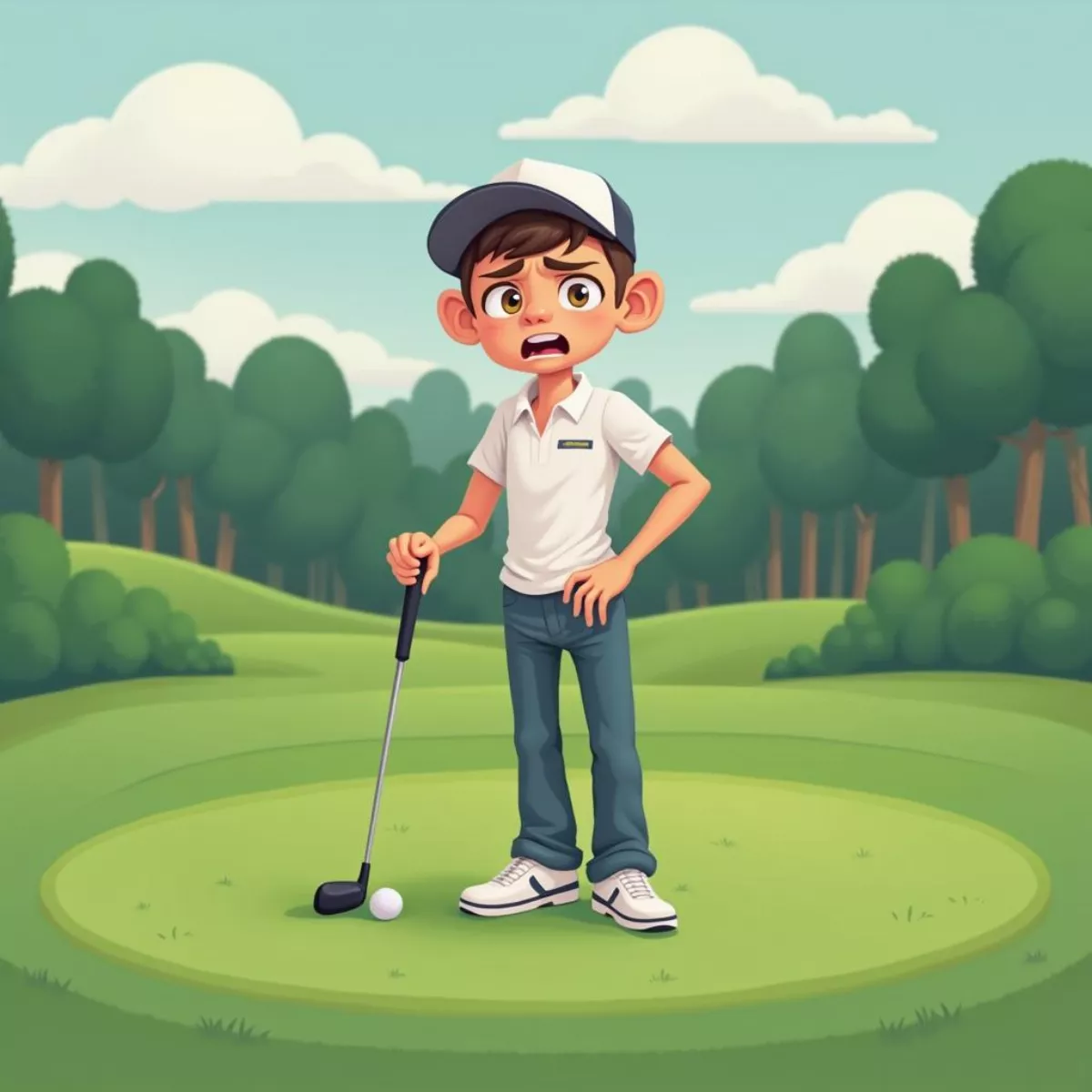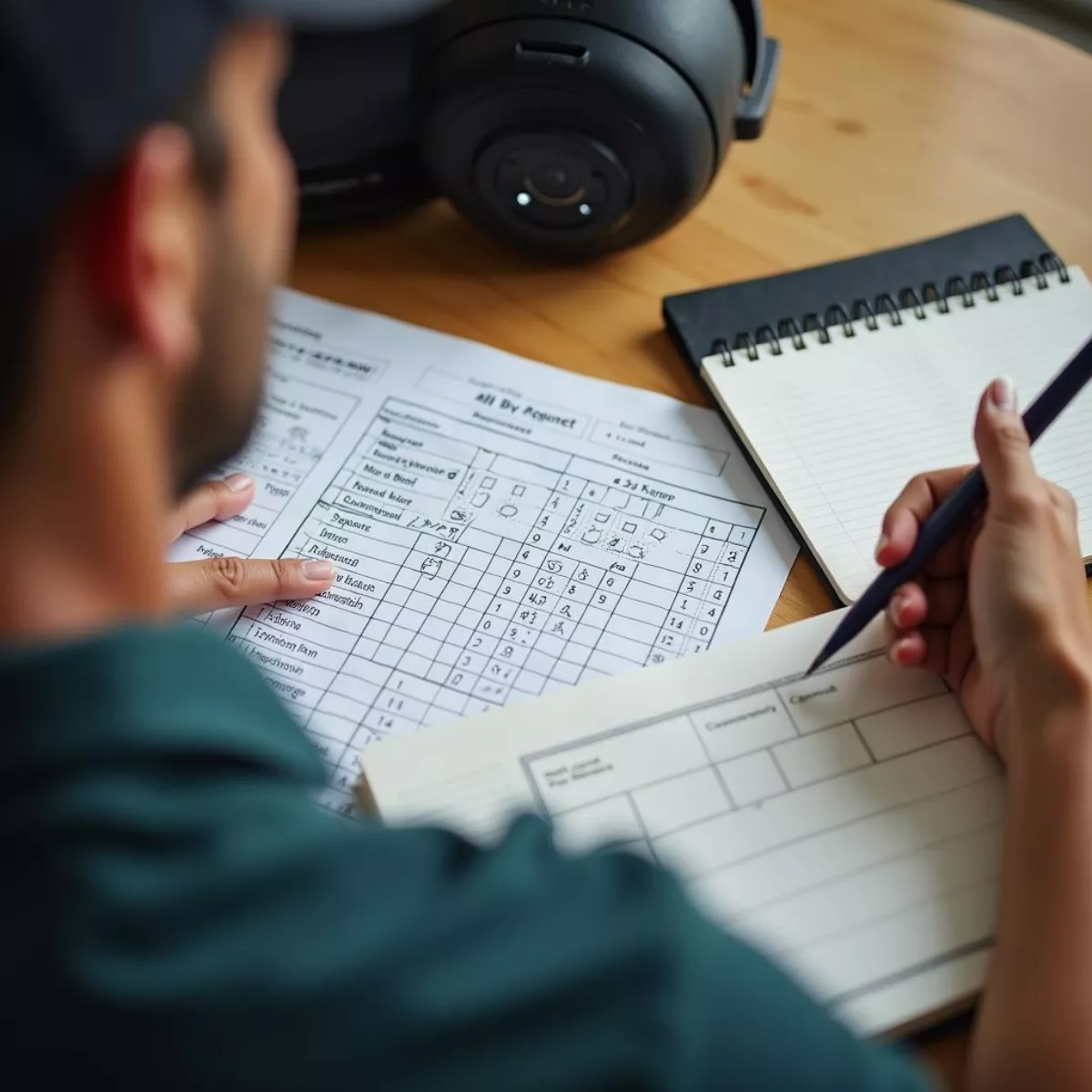Golf is a game that dances on the edge of physics and psychology. It’s often said that golf is 90% mental and 10% physical. But why is it that sometimes, despite all your practice, you feel like you’re getting worse? Let’s find out the reasons and, more importantly, how to reverse that trend.
Common Reasons Why Your Golf Game Is Deteriorating
1. Inconsistent Practice Routine
- Regularity is Key: If your practice sessions lack structure or frequency, your skills may decline. It’s important to practice with purpose.
- Quality over Quantity: Spending more hours practicing doesn’t guarantee improvement. Focus on your technique, drills, and varying your practice to cover all aspects of the game.
2. Unrealistic Expectations
- Setting Goals: If you’re expecting rapid improvement after a short period, you might feel disappointed. Set SMART goals (Specific, Measurable, Achievable, Relevant, Time-bound) to manage your expectations.
- Understand the Curve: Remember that improvement in golf isn’t linear. You’ll have ups and downs!
3. Physical Fitness & Health
- Conditioning: Poor physical fitness can lead to reduced stamina and lack of flexibility, impacting your swing mechanics.
- Injury Management: Are you playing through pain? Injuries, even minor ones, can significantly impact your performance. Prioritize recovery and consult a professional if needed.
4. Mental Game and Self-Doubt
- Golf Psychology Matters: The mental aspect of golf can weigh heavily on your performance. Negative self-talk or overthinking can ruin your focus.
- Mindfulness Techniques: Practice mindfulness and breathing exercises to stay in the present and manage stress while playing.
 Stressed golfer on the course
Stressed golfer on the course
5. Changes in Equipment
- Familiarity and Comfort: Sometimes new clubs or a change in ball can throw off your game. Are you comfortable with your current set?
- Session with a Professional: Consider having a pro fitting session to ensure you’re using the right equipment.
6. Lack of Professional Instruction
- Seek Help: Golf is a complex game. If you haven’t taken a lesson in a while, it might be time to get a fresh perspective from a qualified instructor.
- Elephant in the Room: A new set of eyes can pinpoint issues you may not realize you have.
7. Playing Conditions Variability
- External Factors: Weather, course conditions, and even time of day can vary dramatically from day to day. Are you accounting for these factors in your performance?
- Adaptability: Learning to adapt your game to varying conditions can make a big difference.
 Rainy golf course
Rainy golf course
8. Fatigue and Burnout
- Balance is Key: Do you play too much without breaks? Fatigue can lead to poor decision-making and physical mistakes.
- Scheduled Rest: Ensuring rescheduling rest days can improve performance in the long run.
9. Lack of a Solid Pre-shot Routine
- Consistency is Crucial: If you’re rushing shots or changing routines frequently, your performance will likely suffer.
- Develop a Routine: A solid pre-shot routine can help center your focus and improve consistency.
10. Not Tracking Progress
- Use Stats: Failing to keep track of statistics can prevent you from seeing where your game is improving or declining.
- Keep a Journal: Write down scores, notes about your game, and areas that need focus.
 Golfer reviewing their performance
Golfer reviewing their performance
The Importance of Reflection
Sometimes, reflecting on your past performances, reasons for mistakes, and victories can be crucial. Sit down with your golf journal and analyze what worked and what didn’t.
Key Takeaways
- Practice with Structure: Quality routines are essential.
- Set Realistic Goals: Manage your expectations.
- Physical Fitness: Prioritize conditioning and recovery.
- Master the Mental Game: Work on mindfulness and stress management.
- Consult Instructors: Seek professional advice regularly.
- Track Progress: Keeping records can reveal trends.
Frequently Asked Questions (FAQ)
1. Why do I hit the ball worse during tournaments than in practice?
Tournament pressure can create anxiety, leading to a decline in performance. It’s essential to develop mental coping mechanisms.
2. Should I change my golf clubs if I’m struggling?
Only if you believe they’re significantly affecting your game. Get fitted by a professional to determine suitability.
3. How often should I practice to see improvement?
Aim for at least 2-3 focused practice sessions a week, but ensure that every session has a purpose.
4. Can injuries affect my golf game?
Absolutely. Any pain or discomfort can impact your swing mechanics. Prioritize recovery to avoid prolonging any issue.
5. Is it normal to plateau in my skill levels?
Yes, plateaus are common in golf. Riders’ highs and lows are part of the journey.
6. What can I do if I feel mental blocks during my game?
Mindfulness exercises, visualization techniques, and breathing practices can help clear your mind.
7. How can I work on my pre-shot routine?
Take time on the range to develop a consistent pre-shot routine, focusing on visualization and calmness.
8. Should I hire a coach if I’m getting worse?
If your game has stagnated, a professional instructor can provide valuable feedback and guidance.
9. How much of golf is mental vs. physical?
While the split can vary by player, a common viewpoint is that golf is 90% mental and 10% physical.
10. Are there exercises I can do to improve my golf game?
Yes, flexibility, strength, and balance exercises can greatly enhance your golf performance. Consider yoga, Pilates, or specific strength-training routines.
In conclusion, while it may feel frustrating to see your golf game decline, it’s crucial to recognize that the sport is both a mental challenge and a physical endeavor. By focusing on your routine, health, mindset, and techniques, you can turn a downward trend into upward progress.
Happy golfing, and remember: persistence pays off!

